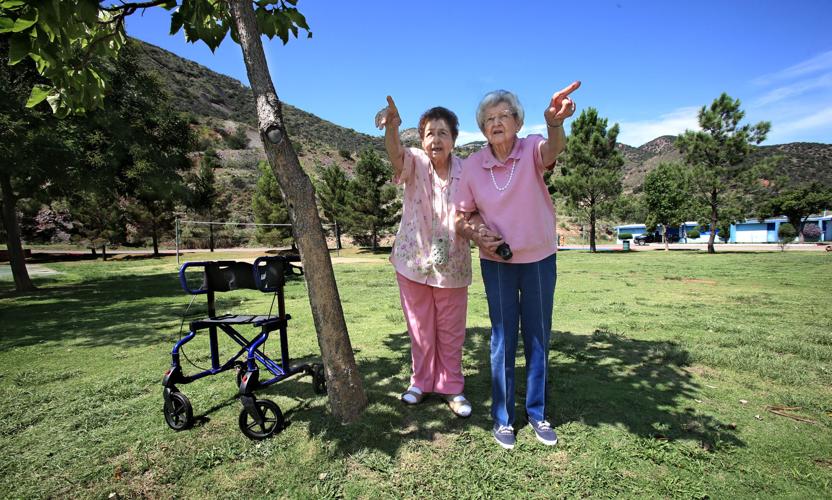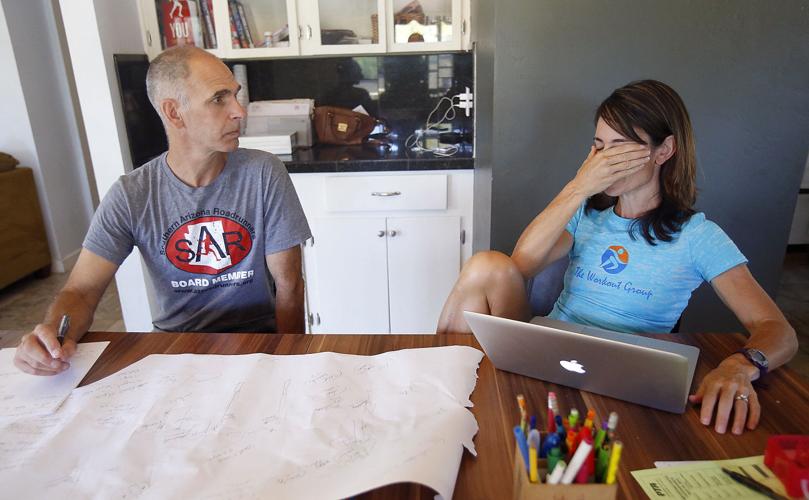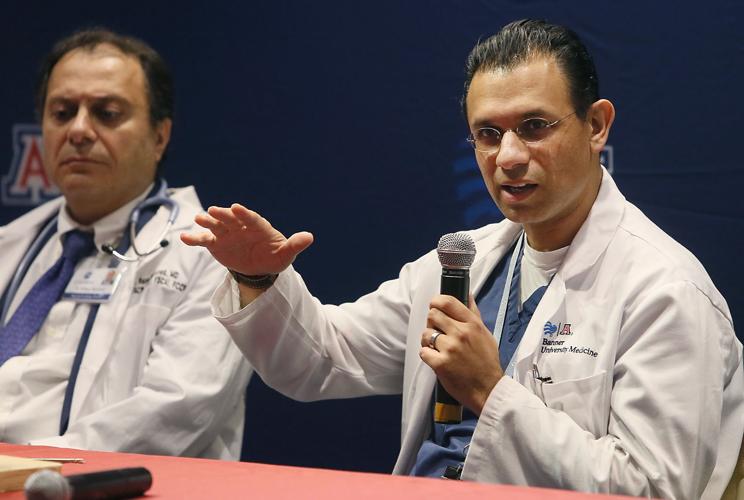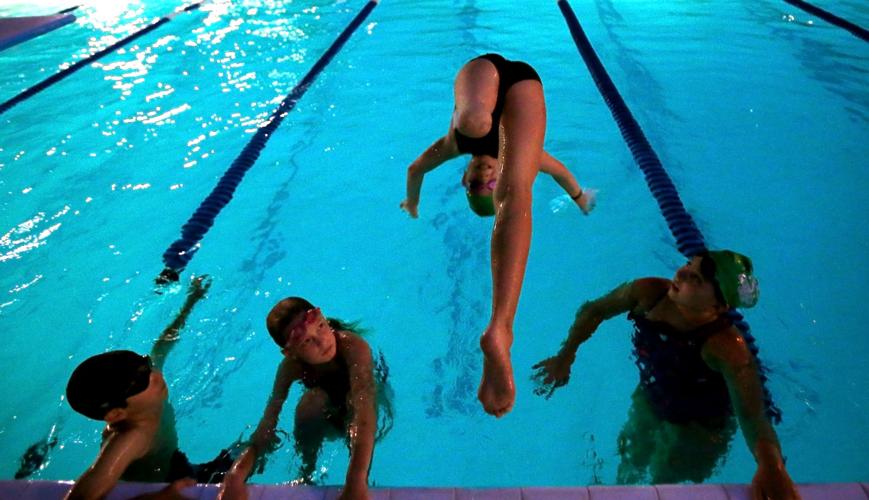NEW YORK —
We sportswriters get into this business because we cannot wait to see where sports will take us.
We hope that we will see the farthest ends of the universe; that we will chronicle the most important moments on turf, or on hardwood, or on baseball dirt, or on tennis grass; that we will reach to the heavens and meet our heroes, and even more, bring them back down to earth with us.
You don’t get into this business for the money, maybe for the fame, but that is fleeting. You get into this because you become obsessed with the singular pursuit of chasing the story, and boy, you just hope it takes you places.
I sure never expected to be taken to Tucson.
I arrived in 2013, off an inspired phone call from new sports editor Ryan Finley. This was one of his first major moves as sports editor, and I was not just filling an important spot, I’d be taking over for family. Sports features writer Patrick Finley, Ryan’s twin brother, was off to Chicago with his wife, former star graphic designer Kori Rumore, and these were not just ordinary shoes I’d be lacing up. Patrick starred for the Star at making the quirks of the city’s sports teams and athletes come to life, and Ryan sold me on a similar vision.
Coming from Los Angeles, the media capital west of the George Washington Bridge, after a year covering the Lakers, Clippers, Dodgers, Ducks, Bruins and Trojans, I wasn’t sure where I was headed. I just wanted to write long stories about good people.
Here’s the thing, though. I wasn’t just taken to Tucson.
During the last 3½ years, I was taken to the Mongolian Steppe with Michelle Tanaka, a spunky 25-year-old woman with an unshakable case of wanderlust. She rode the Trans-Siberian Railway, hiked the Annapurna Circuit in the Nepalese Himalayas and spent nights under the flawless skies of Australia.
Then Tanaka went and traced the path of the great Genghis Khan’s vast mail route, riding 600 miles on wild horses in the Mongolian Derby, finishing third out of more than three dozen contestants.
Even that wasn’t enough to cure her wide eyes for the world.
“No, it’s not enough,” she said. “It might be a while until the next one, but I know it’s not enough. I’m already like, ‘Well maybe I can do the Iditarod.’”
She would’ve fit right in with Anne Henry and Lupita Jordan.
Those two transported me to an entirely different era, to before World War II, to colorful Bisbee. I was there with the two of them, standing on what used to be Horace Mann Field, as they saw each other for the first time in 74 years, when they squared off in a softball game between Southern Arizona Auto and the Douglas Jitterbugs, when their entire lives were but a mirage in front of them they hoped would come true.
“Sometimes I dream that I’m playing,” Lupita told me. “I’m very active, I’m playing, I’m running. And then I wake up and I’m in bed.”
I wasn’t just taken to the past. I was taken to the future, with Dr. Zain Khalpey, sitting in his office at Banner-University Medical Center, listening to the this-can’t-be-real techniques he used to save the life of Tucson Roadrunners team captain Craig Cunningham, who dropped to the ice just prior to the start of a minor-league hockey game and wound up inspiring a city.
Khalpey took me deep inside Cunningham’s veins, down to his pulsating atoms, weaving me through the story like a tube that coursed through the 26-year-old’s body.
“And then he squeezed my hand, and I was like yes. Yes,” Khalpey said then, only a few months ago, his voice turning into a whisper as he leaned back in his chair, closing his eyes and pumping his fist. “Can you … believe this? This is amazing.”
These were stories, and they were about Tucson, and they were indeed amazing. Along with countless others, ones I felt privileged to tell.
About little Liberty Freeman, a Marana local swimming champion with one leg and an interminable spirit; about Rio Lee, maybe the next great rodeo champion from Arizona, who’s got a body for bareback riding and a brain for writing romantic poetry; about Tia Accetta, a marathoning mom and wife who was struck down by a mysterious stroke only to find her gait once more.
These are the stories I was born to write, and, it turns out, I was born to write them in Tucson.
Now I am off to New York City, where my wife has found a job and I go to find a muse. Hopefully, it will take me places. One thing is for sure. I never expected to be taken to Tucson. Even more, I never expected to be so taken by Tucson.







